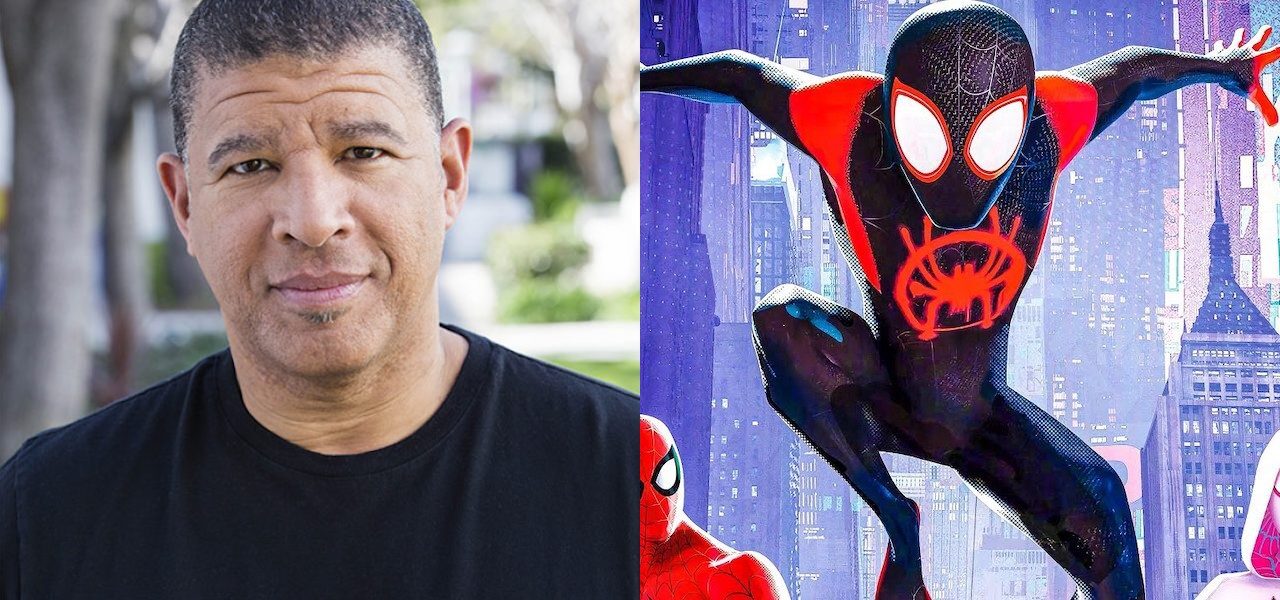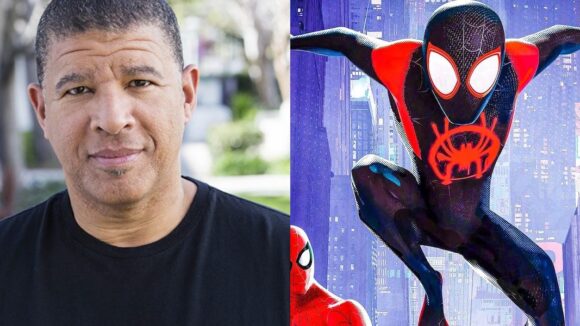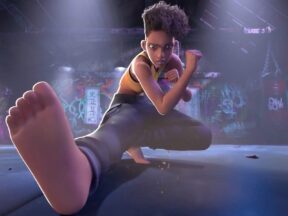

Five Things We Learned From ‘Spider-Verse’ Director Peter Ramsey’s Profile In ‘Vanity Fair’
In recent years, coverage of Peter Ramsey’s career on Cartoon Brew has been a story of awards triumphs and tantalizing new projects: since winning an Oscar for co-directing Spider-Man: Into the Spider-Verse, the filmmaker has been on a roll.
A new profile of Ramsey, written by Anthony Breznican for Vanity Fair, outlines his zig-zag path to success. Breznican begins with his childhood in South Central, L.A. — geographically close to Hollywood but culturally far removed — then traces his career (chiefly as a storyboard artist) in live action and subsequent move into animation. In a striking passage, we learn how Ramsey felt after becoming the first Black director of a major cg-animated feature with Dreamworks’ Rise of the Guardians, only to feel like he failed people’s expectations.
We’ve summarized our five main takeaways from the profile below. The article is worth reading in full: check it out here.
Two mentors saw Ramsey’s potential as a director: John Singleton and Francis Ford Coppola.
Ramsey worked for the former on several films including Boyz n the Hood, and for the latter on Bram Stoker’s Dracula. Ramsey says Singleton saw him as a fellow striving Black artist: “He was definitely like, ‘I want to bring as many people as I can with me.’” Meanwhile, Coppola inducted Ramsey into the world of executive meetings, telling him: “As a young director, you’ve got to know how things work with the studio.”
Ramsey didn’t think much of animation before joining the industry.
Approached by Dreamworks as it was working on Shrek, Ramsey was dismissive: “Eh, animation shmanimation, I’m doing real movies! So thanks, but no thanks.” Only after the release of Shrek 2, when the studio dangled the possibility of a directing job before him, did Ramsey accept the invitation.
The disappointing box-office performance of Rise of the Guardians hit Ramsey hard …
… not least because, as a trailblazing Black director in animation, he felt extra pressure to do well. “I had newspaper articles describing me as ‘the Obama of animation,’” he said. “I remember the weekend after the opening, and we were in these incredibly gloomy phone calls. I said, ‘Well, I guess instead of the Obama of animation, I’m now the Herman Cain of animation.”
Ramsey is increasingly active in arts education.
Since his success with Spider-Verse, the filmmaker has been flooded with requests to speak to audiences. He says: “When it comes to things that have to do with arts education for any kids really, but of course, Black students in particular, I always do it. I know how much it means to people when you interact with them. Partially because I know how much it meant to me when somebody took my aspiration seriously.”
Live action is central to Ramsey’s future plans.
He is currently directing Lost Ollie, a hybrid series for Netflix. “Ramsey hopes Lost Ollie will be a stepping stone to more live action,” writes Breznican, who describes three projects the director has in store: Blood Count, a supernatural noir thriller set in South Central; Love in Vain, a fantasy about legendary blues musician Robert Johnson; and Boy 21, a story of two friends on a Philadelphia high school basketball team who help each other through the season.

